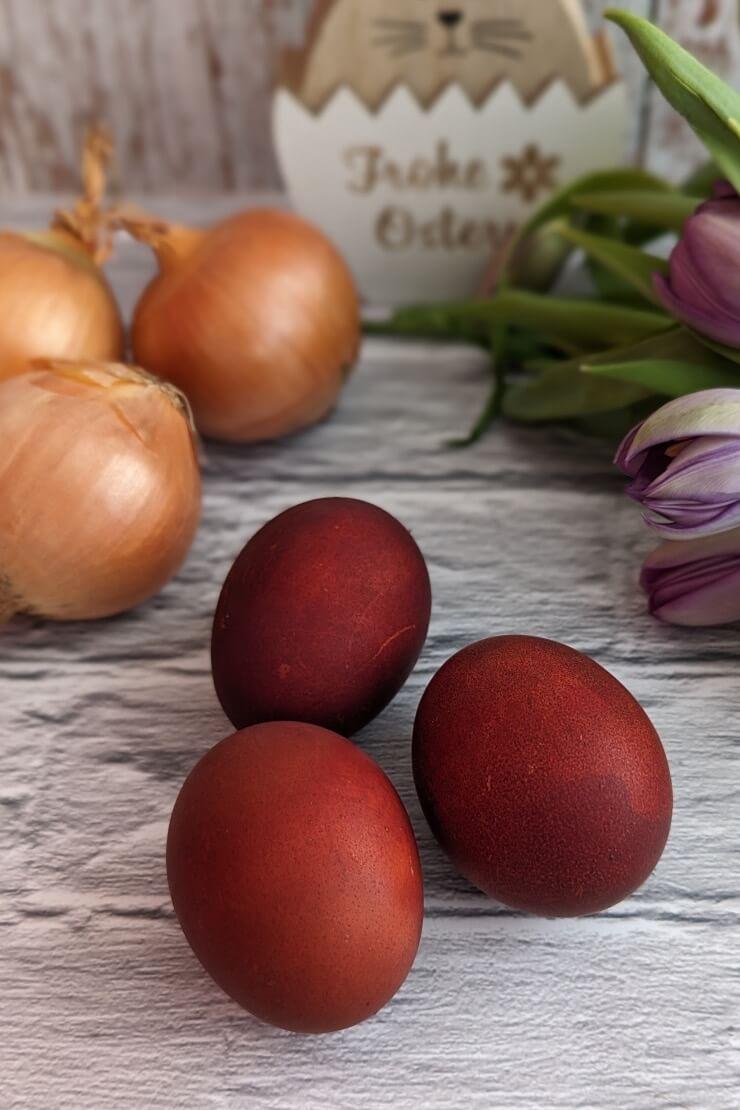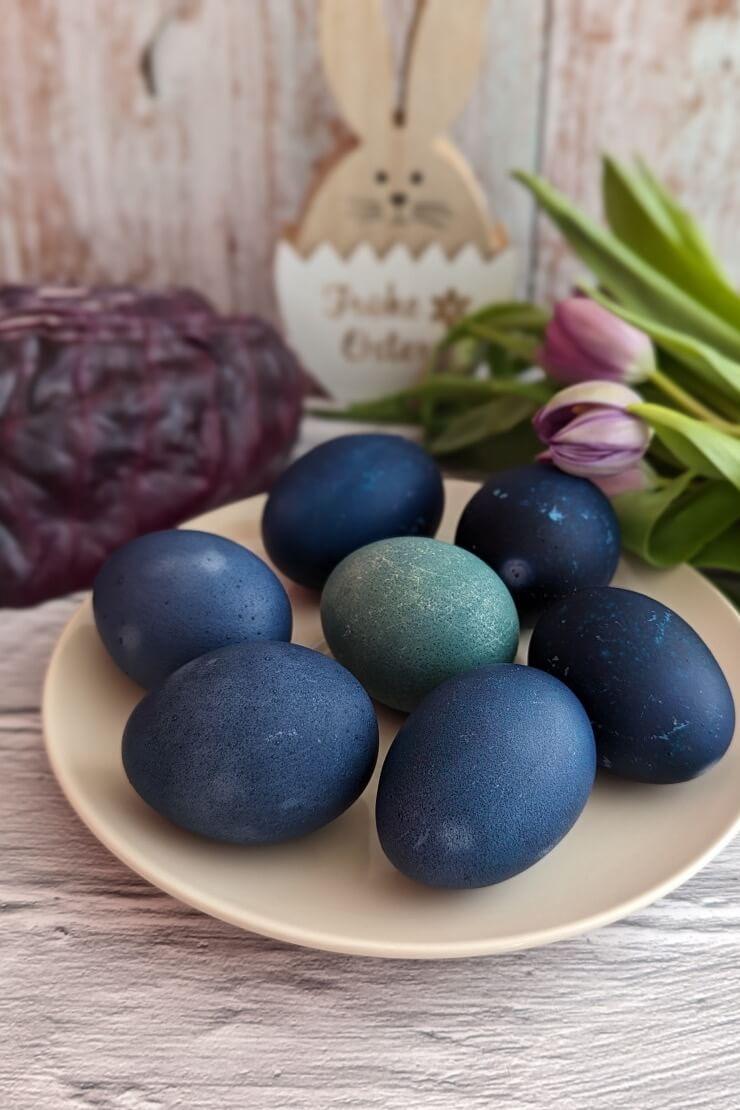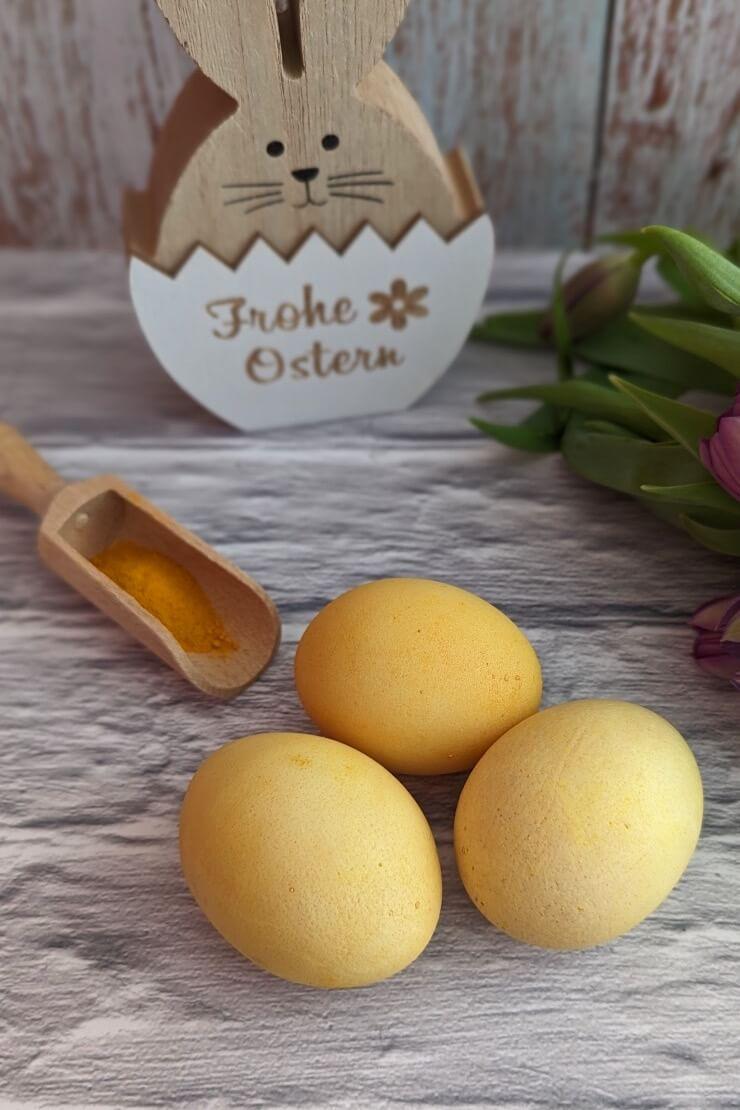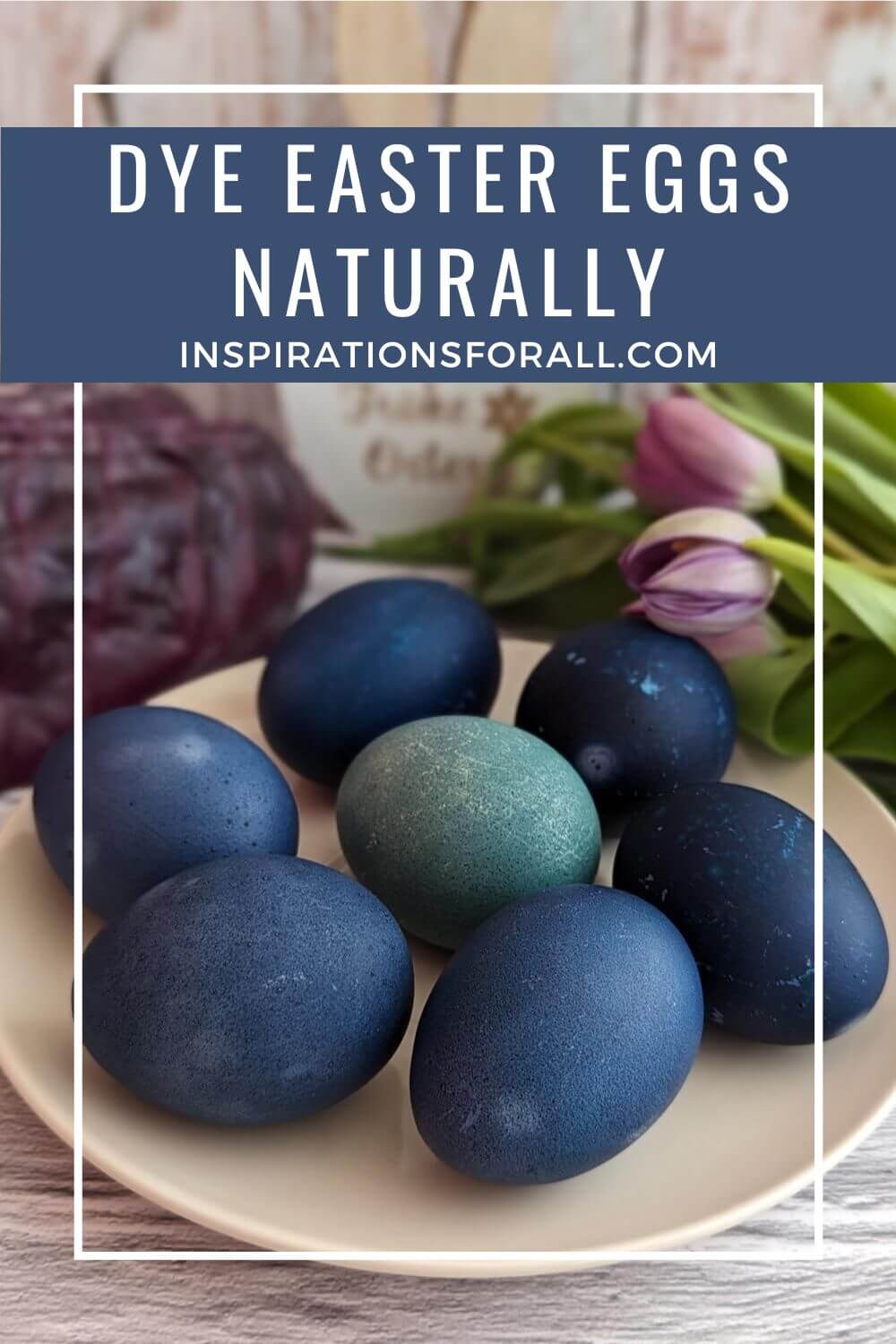Dieser Beitrag ist auch verfügbar auf:
Deutsch
You can dye Easter eggs naturally with a variety of vegetables, fruits, herbs and spices. I will show you a few ideas here. With red cabbage, onion skins and turmeric, you can dye eggs dark red, turquoise, blue and yellow for Easter.

Preparing eggs for dyeing
Buying eggs
As with Russian eggs, buy organic eggs for dyeing to reduce animal suffering. Or get eggs from an organic farmer in your area. This way you can see for yourself how the hens live on the farm.
White or brown shell?
Eggs with a white shell are more suitable for dyeing. They take on natural colors more intensely than eggs with brown shells.
Clean thoroughly
Clean raw eggs carefully with washing-up liquid, a dishwashing sponge and water before dyeing. This will remove any stains so that the eggs can be dyed evenly.
Use room warm eggs
Raw eggs must be room warm to prevent them from cracking during cooking. So leave them at room temperature long enough beforehand if you store them in the fridge.
Raw or cooked?
For some colors, I used raw eggs and boiled them directly in the broth with the natural colorant. For other colors, hard-boiled eggs were used and simply placed in the broth to steep.

Dye Easter eggs naturally
With these foods you can get colorful Easter eggs without any chemicals. Onion skins, red cabbage and turmeric color eggs naturally.
Dyeing eggs with onion skins
You can use onion skins to dye eggs dark red or brown. It is best to start collecting the onion skins a few days in advance.
You need:
- 50 g yellow onion skins,
- 1 l of water,
- room warm raw eggs.
This is how it works:
- Put onion skins and water in a saucepan, bring to a boil and simmer on the lowest heat for 30 minutes. At the beginning, the skins will not be covered by the water. Later, while they are simmering, push them completely into the water with a spoon.
- Then turn off the heat and leave the onion skins in the water to cool slowly to room temperature.
- Now strain the stock and boil the eggs in it for about 10 minutes until hard-boiled.
- Leave the eggs to stand and cool in the stock for a few hours.
- Depending on the desired color intensity, you can then leave the eggs in the stock in the fridge for another 12 hours.

Three colors with red cabbage
You can use red cabbage to dye Easter eggs in three different colors. The red cabbage and water mixture produces blue eggs. If you add a little vinegar to the stock, the eggs will turn dark blue. If you stir a small amount of baking soda into the stock, the Easter eggs will turn turquoise.
You will need:
- 1 red cabbage,
- 2 l of water,
- 1 tbsp vinegar essence,
- 1 tsp baking soda,
- room warm hard-boiled eggs.
This is how you proceed:
- Cut red cabbage into strips and put it in a large saucepan with 2 liters of water. Bring to a boil, simmer on a low heat for 30 minutes, pressing the red cabbage into the water with a spoon, and then leave to cool to room temperature.
- Meanwhile, boil eggs in water for 10 minutes, remove them from the water and leave them to cool to room temperature.
- Strain the stock with the red cabbage, divide it into three equal portions and pour each portion into a suitable container.
- For blue dye, place hard-boiled eggs in one of the portions of red cabbage stock and leave to infuse for a few hours until the desired color intensity is reached. You can also leave them in the fridge overnight.
- For a dark blue color, stir 1 tablespoon of vinegar essence into the second portion of stock and place hard-boiled eggs in it. Leave them in the stock for between 2 and 12 hours.
- For turquoise-colored Easter eggs, mix baking soda into the third portion of red cabbage stock. Leave hard-boiled eggs to infuse for 2 – 12 hours, depending on the desired color intensity.

Dye Easter eggs naturally with turmeric
You can dye eggs yellow with turmeric powder.
You need:
- 50 g turmeric powder,
- 1 l of water,
- room warm raw eggs.
This is how it works:
- Dissolve turmeric powder in water and boil eggs in it for about 10 minutes until hard-boiled.
- Leave the boiled eggs in the broth to cool to room temperature and then leave to stand in the fridge for about 12 hours.

Influencing the intensity of the color
The more natural colorant you use, the stronger it dyes Easter eggs. The intensity of the color also depends on how long the eggs remain in the stock. They will be lighter after a few hours than after around 12 – 24 hours.
Add shine
For a nice shine, you can rub your naturally dyed Easter eggs with a little vegetable oil. However, let them dry thoroughly beforehand after taking them out of the stock. Otherwise the natural color could come off.
Have you experimented with dyeing Easter eggs naturally? What colorants did you use? I look forward to your results and your comments below.
Looking for Easter recipes? Try these out:
- Easter bread wreath with marzipan & almonds – simple recipe
- Braided Easter bread vegan – easy eggless sweet yeast bread recipe
- How to make Easter cookies “fried egg”: recipe with lemon curd
If you are using Pinterest, you can pin the following picture:

